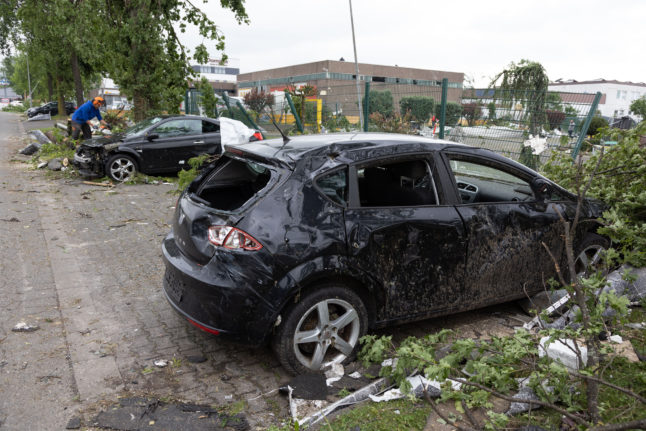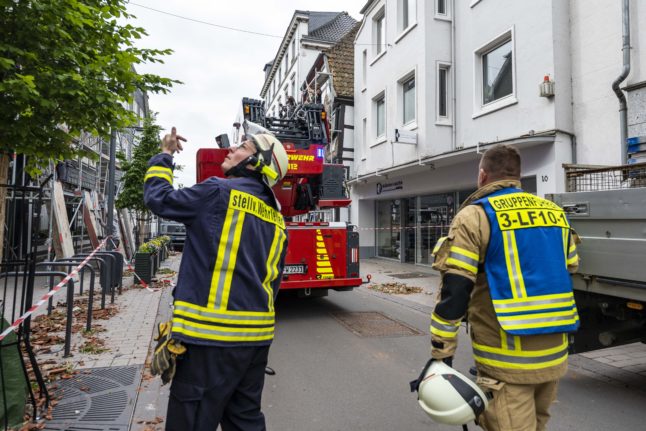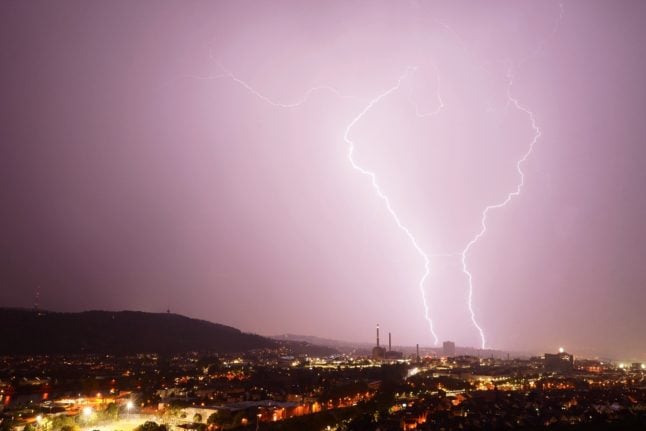A police spokesman said the tornado also caused significant damage in the city in the North Rhine-Westphalia state, following abnormally high temperatures for the time of year.
The city’s fire department said on Twitter that “38 injured people, including some gravely” had been taken to hospital. The police said one person was fighting for their life.
Über den #Rettungsdienst sind 38 -zum Teil schwer -verletzte Personen in Krankenhäuser transportiert worden. #Paderborn
— Feuerwehr Paderborn (@FeuerwehrPB) May 20, 2022
Paderborn, fire service added, “Please do not drive to Paderborn on your own without prior agreement of help. If necessary, further units of the fire brigade will be alerted and called in.”
In neighbouring Rhineland-Palatinate state, a 38-year-old man died after he was electrocuted when he entered his flooded basement and fell on his head, the police in the city of Koblenz said.
Railway travel was disrupted in the west of the country, as police called on people to remain indoors.
In Paderborn, police estimated the damage caused by the tornado at “several million” euros.
The spokesman reported “roofs torn off, windows shattered and numerous trees uprooted throughout the city”.

Images posted on social media showed the tornado column progressing towards homes, sweeping away trees and building sections. Other pictures from the wider region showed cars that had been upturned.
#Paderborn #Unwetter
Kenne leider die Quelle nicht, wurde mir zugeschickt.
Angeblich bei Paderborn. pic.twitter.com/bmyd75cyiB— Marc C. Hübner (@5fach) May 20, 2022
Altobelli 😳
Was für eine Gewalt. Absolute Lebensgefahr ⚠️#Tornado #Paderborn pic.twitter.com/xDhHoRd2a5— Jan Ole Unger 🇺🇦🇩🇪 (@jounger) May 20, 2022
The town of Lippstadt, about 30 kilometres away (18 miles), was also probably hit by a tornado, a fire department spokesperson said, though no injuries had been recorded. The steeple of the church in Lippstadt had been destroyed by the high winds.
German meteorological services had put out a storm warning for Friday and predicted gales of up to 130 km/h (80 miles/h) in some places.
The bad weather first hit the west of the country and was set to travel eastwards.




 Please whitelist us to continue reading.
Please whitelist us to continue reading.
Member comments